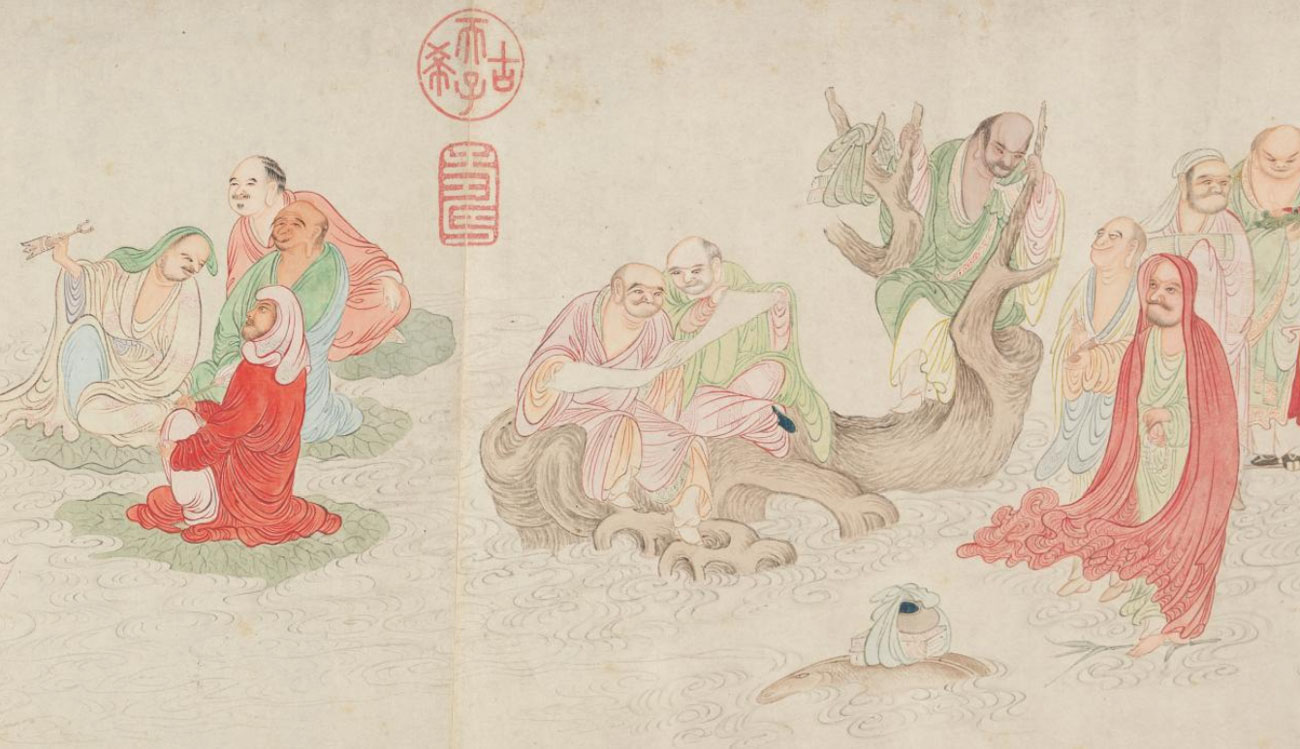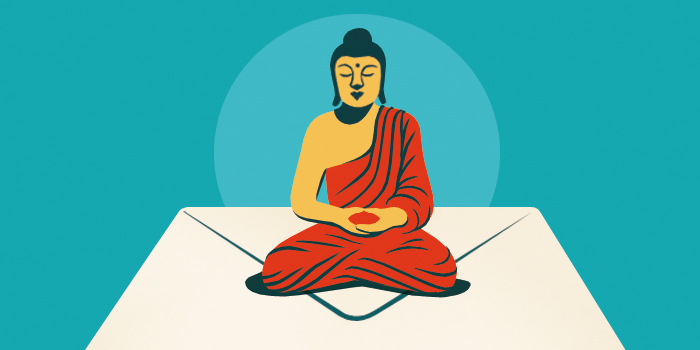What role does ethics play in Buddhism?

A drawing entitled The Five Hundred Arhats, from China’s Ming Dynasty. Arhats, also called “the enlightened ones” are disciples of the Buddha and protectors of the Buddha’s law. | Source: Cleveland Museum of Art
Living ethically is a foundation of Buddhism. Buddhist ethics are part and parcel of training the mind and freeing ourselves from suffering. The Buddha teaches us to examine constantly whether or not what we think, do, and say causes harm to ourselves and others. By avoiding actions that cause harm, we can make serious headway toward waking up. But if we keep engaging in them, we will continue to suffer and cause others to suffer as well.
That’s why the eightfold path—the Buddha’s path of practice—includes myriad guidelines and strategies for behaving ethically. A basic set of guidelines taken on by many new practitioners is known as the five precepts. When we recite the precepts, we commit to abstain from:
- killing other living beings
- stealing or taking what is not given
- engaging in illicit sex
- lying or gossiping
- taking intoxicants
Buddhism promotes ethical conduct to such an extent because acting virtuously, it posits, directly causes the freeing of the mind. If you sit down to meditate and you begin to cogitate over some lie you told, the affair you’re having, or the money you stole, you won’t get far. That’s part of how karma works: your actions have consequences, both for those around you and for your own state of mind. And if your mind is constantly ruffled—tortured, even—by ruminations about having caused harm, you won’t be able to settle down or move forward on the spiritual path.
Living ethically has the opposite effect: the mind becomes freer and lighter, and it’s easier to concentrate and see clearly. And as the Buddha taught, even if we don’t become enlightened in this lifetime, only good can come from cultivating virtue.

Tricycle is more than a magazine
Gain access to the best in sprititual film, our growing collection of e-books, and monthly talks, plus our 25-year archive
Subscribe now